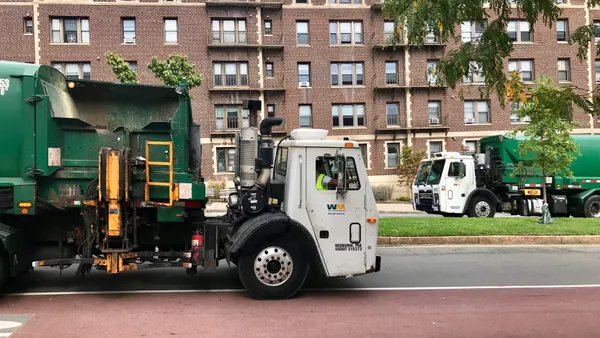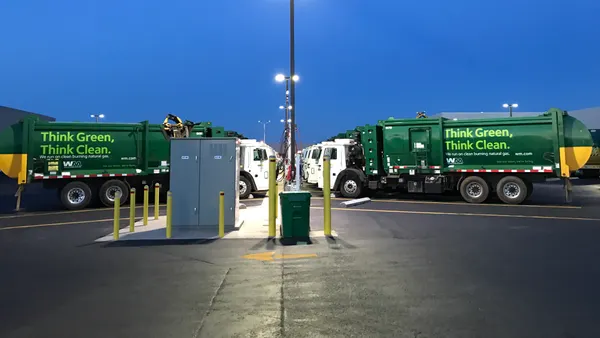Dive Brief:
- Maryland Gov. Larry Hogan signed the "Operation When Approaching Vehicle with Visual Signals" bill into law on Tuesday, making Maryland the 18th state to pass Slow Down to Get Around (SDTGA) legislation.
- The bill requires drivers approaching from the rear of a collection truck to make a lane change or to "slow to a reasonable and prudent speed that is safe for certain existing conditions." The law goes into effect on Oct. 1.
- The announcement was applauded by both the National Waste & Recycling Association (NWRA) and the Solid Waste Association of North America (SWANA). "This is an excellent example of what the industry can do when we work together to achieve a common goal," SWANA CEO David Biderman said in a statement.
Dive Insight:
The first two worker fatalities in 2017 took place in Maryland, according to SWANA, sparking interest in advancing SDTGA in the state. Marcus Colbert, a Laurel Department of Public Works employee, was one of the workers killed on the job last year when an SUV fatally struck him while working on the back of a city trash truck.
SWANA data indicates that a total of 38 industry employees were killed in 2017 — 23 of whom died on collection routes. Refuse collection has historically maintained its spot as the fifth-most dangerous occupation in the country. SDTGA legislation, along with training and increasing truck technologies, have all been critical tools in advancing industry safety.
Safety has long been a top priority in both the public and private waste sectors, and was a highlighted topic across the board in recent Q1 earnings calls. Advanced noted in its call that it is leveraging its safety culture as a way to help retain workers, while Republic recently celebrated two "Driver of the Year Awards," honoring Toribio Gonzalez and Chuck Thorpe for their safety records and community engagement.
Recent data from Lytx identified some primary causes of driver accidents, such as "failure to keep an eye out" and "intersection awareness." However, Lytx notes that oftentimes such accidents are not the waste collectors' fault, so advancing community awareness and education is necessary to decrease the occurrence of such incidents.














